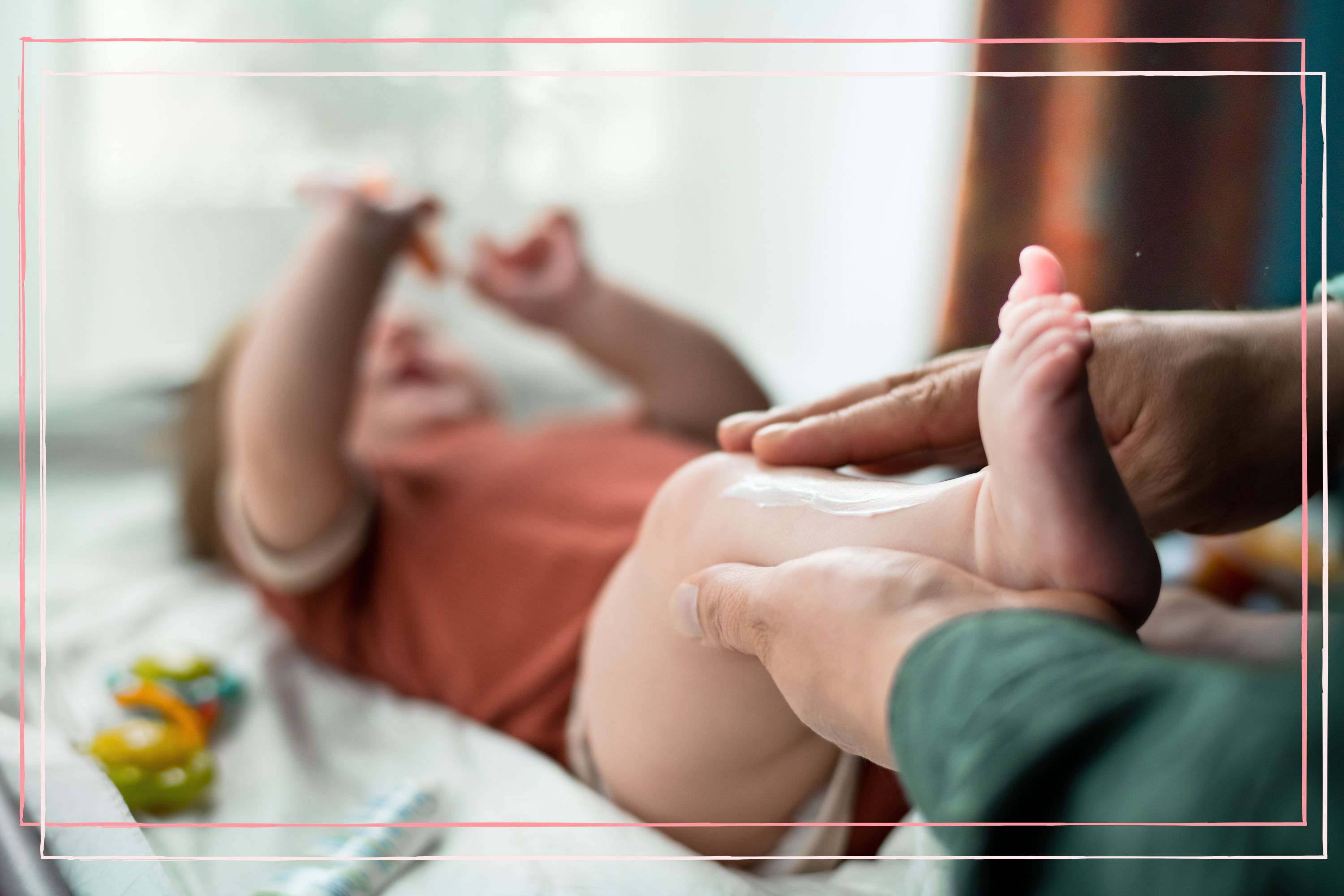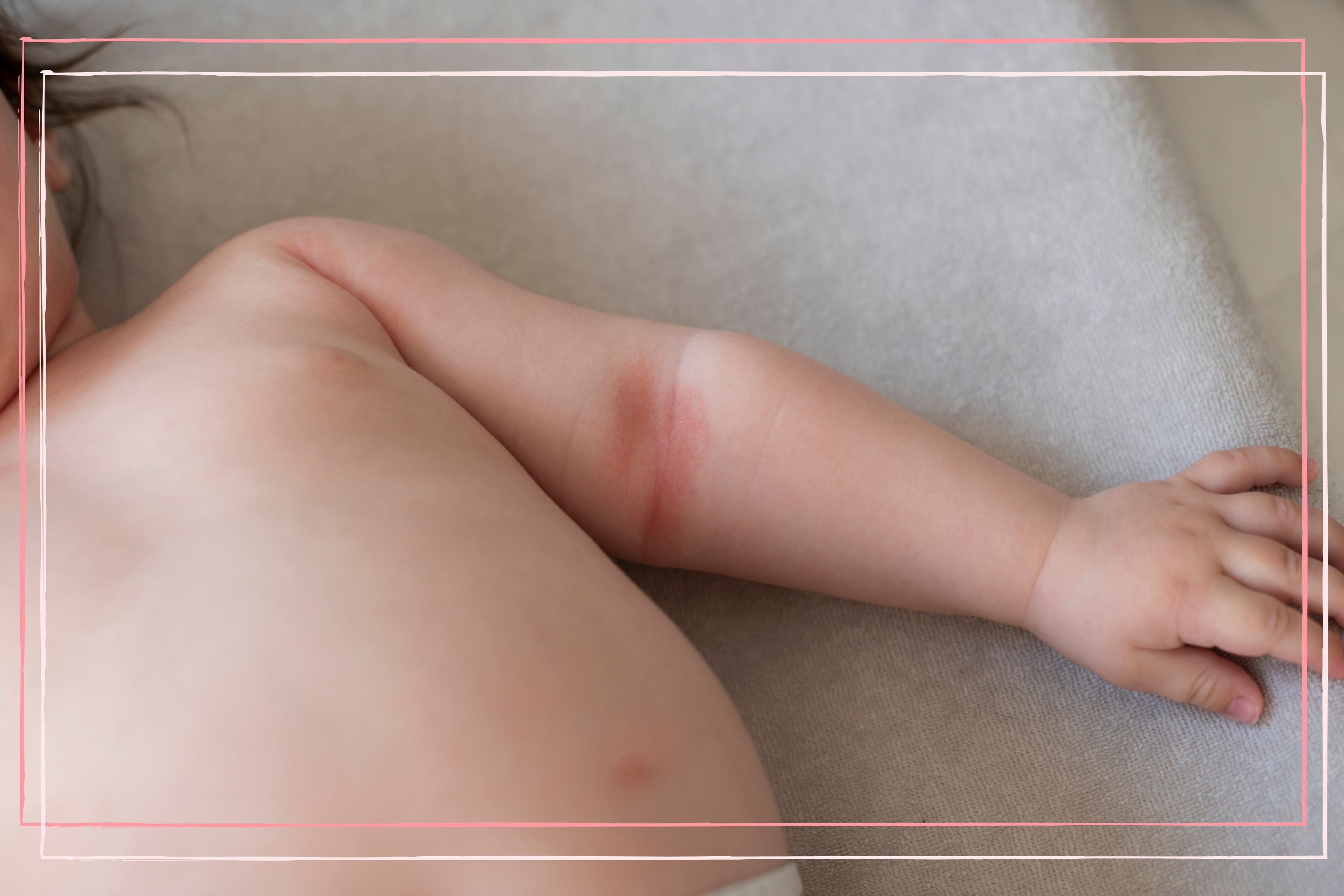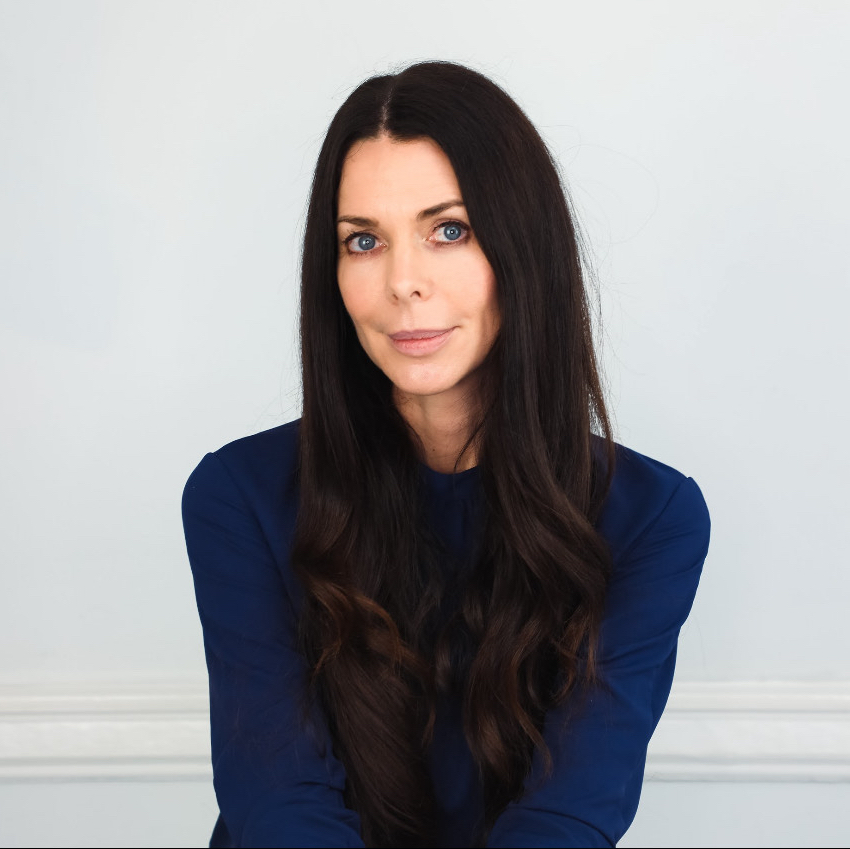Key advice on baby eczema from experts, for parents looking to soothe skin at home
Doctors share their insights on how to help soothe baby eczema and what not to do if your child has this common skin condition


Parenting advice, hot topics, best buys and family finance tips delivered straight to your inbox.
You are now subscribed
Your newsletter sign-up was successful
Baby eczema and eczema in young children is very common. Fortunately, there are plenty of ways to calm the skin condition and ease your little one’s discomfort.
According to The National Eczema Society, a fifth of children in the UK suffer from eczema, which presents with symptoms such as redness, dryness and itchiness of the skin.
While it’s important to first seek personalised medical advice from a doctor, there are a number of steps that parents can also take at home to help soothe flare-ups.
We consulted Dr Sasha Dhoat, a consultant dermatologist with a specialist interest in paediatric dermatology, Dr Anita Sturnham, a GP with specialised training in dermatology, Dr José Costa, a senior consultant paediatrician specialising in children’s allergies, and consultant dermatologist Dr Angela Tewari to bring you this evidence-based guide to eczema in babies and children.
As well as giving you an overview of how eczema in babies and young children manifests, what may cause symptoms and the advice a healthcare professional might give you, we will also provide answers to some of your most common questions about the skin condition. These include how long recovery might take and how often you should bathe skin and the best clothing options.
It is vital to follow official NHS advice - such as that compiled by Great Ormond Street Hospital - and start by contacting your GP for tailored treatment and potential referrals. If symptoms worsen, or are causing your baby or child significant distress, it is important to seek urgent support from a doctor or another healthcare professional.
What is baby eczema?
"Eczema is a common inflammation of the skin, which affects one in five children at some point," says Dr Dhoat. "It can present in any skin area - including the face - but most commonly the creases of the joints at the elbows and knees, as well as the wrists and neck." Often, eczema presents within the first six months of life, which is why baby eczema can be a common.
Parenting advice, hot topics, best buys and family finance tips delivered straight to your inbox.
Symptoms, Dr Dhoat explains, include redness, dryness and scratch marks that are sometimes accompanied by bleeding or blistering. There are several different types of eczema, however she adds that the unifying feature is itchiness. This is why the condition - which can go through phases of being less severe before worsening again - can simultaneously disrupt children’s sleep and lead to irritability.

Eczema most commonly presents in the creases of the joints at the elbows and knees, as well as the wrists and neck.
Are there any reasons some babies and children suffer with eczema while others do not?
Reasons a baby or child might develop eczema include allergens and environmental factors, as well as genetics.
The most common form of eczema - called ‘atopic eczema’ - can run in families. "It is a genetic skin condition," notes Dr Costa. "Therefore children with parents who have a history will have a higher chance of developing it themselves." This is also the reason why several siblings may experience it at once - with the idea that it is contagious being a myth.
"Eczema skin is prone to losing moisture - which is needed for a healthy skin barrier," explains Dr Sturnham, who is working with Childs Farm. "This means that allergens, such as bacteria and chemicals, can enter the skin easily and trigger an inflammatory cycle."
"It is not directly caused by environmental factors, however certain things can exacerbate it," points out Dr Costa. Indeed, two rarer types - ‘allergic contact dermatitis’ and ‘irritant contact eczema’ - are triggered by reactions to things like fragrances or soaps.
Regardless of whether genetics or a new bathroom product might be to blame, the key thing is to move with speed if you notice that your baby or child's skin is inflamed. “In my experience, the quicker the treatment prescribed by a doctor is started, the better the outcome,” adds Dr Sturnham.
What might a doctor advise to treat eczema?
You should always begin by seeking personalised medical advice if you think your baby or child has eczema.
"Your GP or dermatologist will be able to assess the skin, confirm the diagnosis and prescribe an appropriate strength of treatment, depending on severity and possibly responses to previous treatments,” says Dr Dhoat.
While there is no cure for the condition, symptoms can be significantly improved. The management of baby and child eczema involves three main pillars.
"One is to avoid potential triggers - such as stripping body washes, soap, strongly fragranced moisturisers, synthetic materials in clothing and bedding and washing powders - and use appropriate substitutes," says Dr Sturnham.
A second pillar is to use a fragrance-free emollient moisturiser - which can come in different forms. "If skin is red, angry, itchy and inflamed, ointments are generally preferable to creams - they contain more oil than water and fewer preservatives, the latter of which can be irritants, and are more moisturising," continues Dr Sturnham. "However, for an older child they may be too greasy a formula to be tolerated."
Whichever moisturiser you choose, it should be applied several times a day to the affected area - although your doctor will give you more detailed instructions. "This will help the epidermis of the skin to function better as a barrier to the environment," says Dr Dhoat. "The drier the skin, the more frequently moisturiser should be applied - I often recommend liberal application at every nappy change."
The third pillar may see a doctor prescribe topical steroids to calm acute flare-ups. "This medication switches off inflammation in angry, red and sensitive skin,” explains Dr Sturnham. They come in different strengths, and also in cream or ointment form, and the type recommended will depend on your child's age and location of the eczema.
What can parents do at home to help soothe baby eczema?
It’s important to be led by your baby or child’s doctor on treatment for eczema, but there are some things you can do at home to help.
"Parents should try to find causes for the flare-ups, and avoid them as best as possible," says Dr Costa. For instance, he notes that UK tap water tends to have a high degree of limescale, which may be having a drying effect that is to blame.
"Allergies to pollen and foods, such as dairy and soya, can also lead to eczema flare-ups," continues Dr Costa. "If you suspect a food may be the cause, remove it and seek advice from a specialist dietitian or an allergist." Additionally, animals could also be behind symptoms, and an infection - be it viral or bacterial - may likewise be a cause.
You can also try to ease your child's discomfort in other ways. "A short-term use of an antihistamine could be helpful for sleep disturbance," suggests Dr Sturnham. It’s also wise to keep your child's fingernails short to avoid damage to the skin from scratching. “What’s more, be on the lookout for a coexisting skin infection, which may be indicated by the accompaniment of a fever or tenderness - and for which a doctor might suggest antibiotics, antifungals or antivirals,” she adds.
Additionally, Dr Dhoat notes: "While swimming is an important life skill, it perhaps should be avoided - temporarily - when the skin is very inflamed, since chlorine in pools can irritate eczema." If you do decide to take a dip as a family, she advises applying a greasy moisturising cream all over your baby or child beforehand, and showering afterwards with your soap substitute followed by moisturiser.
How long does recovery take?
"The signs of recovery will vary, based on how severe the eczema or flare-up was," says Dr Costa. "Reduced itching and redness are the main things to indicate that the condition is subsiding." You'll also likely notice that their sleep is better and they seem happier.
Dr Dhoat also adds that half of children with baby eczema will grow out of it by the age of five and, in the majority of cases of children with eczema, it clears completely or vastly improves by the late teens.
When should you seek further support?
It’s important to use your parental instinct. "With any medical condition, if you feel things are worsening despite following a treatment plan, you should have a low threshold for returning to see your doctor," insists Dr Sturnham. It could be the case that stronger medication, or a referral to a dermatologist or allergist, is required. "Sometimes this can be a sign that alongside the eczema, there is a secondary skin condition that may need additional treatment," she adds.
Dr Dhoat agrees. "If your child is using soap substitutes, moisturiser and topical steroids in maximal amounts as advised, but still has skin changes that are either severe, widespread or do not clear for periods of time, then you should make a new appointment," she says. "The same goes for if your child is experiencing repeated skin infections, missing school, the itch is keeping them up at night, or is interfering with daily activities. Suffering is neither necessary, nor acceptable."
Answers to your frequently asked questions about eczema
How often should I bathe my baby with eczema?
"If your child has eczema, it is important to strike a balance between maintaining cleanliness and minimising moisture loss from the skin," advises Dr Sturnham. "For infants, I recommend having a bath every other day using lukewarm water to wash with. As your child’s skin is not fully developed yet, it can be helpful to use a cloth to cover your child to help to keep them warm whilst in the bath."
Dr Sturnham continues: "Your baby’s face, hands and genital regions may need to be cleansed more often, but this can be done with a soft textured cloth and soap substitute, as required, rather than bathing. For toddlers and older children, bathing should be no more than once daily."
She adds that a child should not spend too long in the bath as this can dry out the skin, with 10 to 15 minutes usually being adequate. After bathing, pat the skin dry gently before applying generous amounts of moisturiser.
What temperature should a baby's room be with eczema?
"Bedroom temperature should be kept cool and central heating not too high," recommends Dr Dhoat. "Moving from cold to warm rooms can also exacerbate eczema, since heat can make the sensation of the itch worse."
Dr Sturnham adds: "An ideal room temperature is 18 to 20 degrees celsius. I also recommend using a humidifier in your child’s bedroom as this can help improve moisture levels."
Does drinking more water help with baby eczema?
"While hydration is important for overall skin health, there's limited evidence that drinking more water directly improves eczema," explains Dr Tewari.
However, a balanced diet rich in fruits, vegetables and healthy fats may support skin health.
Dr Sturnham says the focus needs to be on avoiding harsh, stripping cleansing products and using soothing, calming and hydrating body wash and moisturising products instead. "If your skin barrier has a weakness, your skin will be dry regardless of the amount of water consumed each day," she explains.
What aggravates eczema in babies?
"Avoid irritants such as soap, wipes and products which say ‘fragrance’ or ‘bubble’," advises Dr Dhoat. "Wash with soap substitutes such as Dermol or a fragrance-free moisturiser, and make sure to use laundry products that are specifically designed to be kinder to sensitive skin - without ingredients such as enzymes, dyes, acids or perfumes."
Dr Dhoat adds that other factors which can cause irritation include heat, dust and pets.
Meanwhile, clothing and bedding - depending on the fabric and what it has been washed with - can also irritate the skin.
Is fresh air good for baby eczema?
"While fresh air is good in general, it does not help or harm eczema," says Dr Dhoat. "However dry, windy environments can further dry the skin." Which can exacerbate symptoms.
"It is also not advisable to leave windows opened when it is cold, which might lead to higher susceptibility of developing a viral infection," warns Dr Costa. "This, in turn, can worsen the eczema." Remember that the room temperature should be kept at around 18C to 20C.
How should I dress my baby with eczema?
"Choose loose-fitting clothing and look for soft textures and breathable fabrics, such as cotton or linen," recommends Dr Sturnham. "Try to avoid synthetic materials such as polyester and wool, since they can irritate the skin and trap heat."
Additionally, consider how many layers your little one really needs. "Avoid overdressing the child, as this might lead to sweating - increasing the itching," says Dr Costa.
GoodtoKnow consults a range of medical experts to create and fact-check content. Please note, this is general information only - for more personalised medical advice, always speak to your GP or seek urgent medical attention if needed.
Our experts
GoodtoKnow consulted a range of medical experts to create this content and bring you this evidence-based guide to eczema in babies and children.

Dr Sasha Dhoat is a consultant dermatologist with a specialist interest in paediatric dermatology. With extensive experience in acne, rosacea, eczema, psoriasis and melasma among other conditions, she currently works at Bart’s and The London Hospitals and sees private patients at The Harley Street Dermatology Clinic.

Dr Anita Sturnham is a GP working in the NHS and private practice, with specialist training in dermatology. She has extensive knowledge and expertise in diagnosing and treating various skin conditions, and is also involved in research and education.

Dr José Costa is a senior consultant paediatrician, specialising in research and medical guidance on eczema, as well as childhood food allergies, hayfever and asthma. With over 16 years of experience in paediatrics and 12 years in paediatric allergy, he has worked in both the NHS and the private sector, as part of his own specialist Children’s Allergy Clinic.

Dr Angela Tewari is a consultant dermatologist at her clinic Dermatology Studios, where she treats diseases such as eczema, acne, psoriasis and skin cancer. She also works as an NHS consultant dermatologist at King's College Hospital in London, where among other responsibilities she manages a paediatrics screening clinic.

Lauren is a freelance writer and editor, with more than eight years of experience working in digital and print journalism. She has penned news and features for titles including Women's Health, Daily Telegraph, Cosmopolitan, The Times, Stylist, The Guardian, Woman & Home, Dazed, The Sun's Fabulous, Yahoo UK and Grazia.
Lauren specialises in covering health and wellness topics—ranging from nutrition and fitness, to health conditions and mental wellbeing. She also runs a weekly newsletter called Well, Actually..., which has been named a Substack Featured Publication.